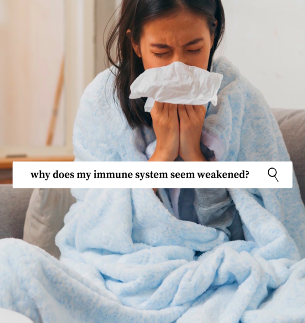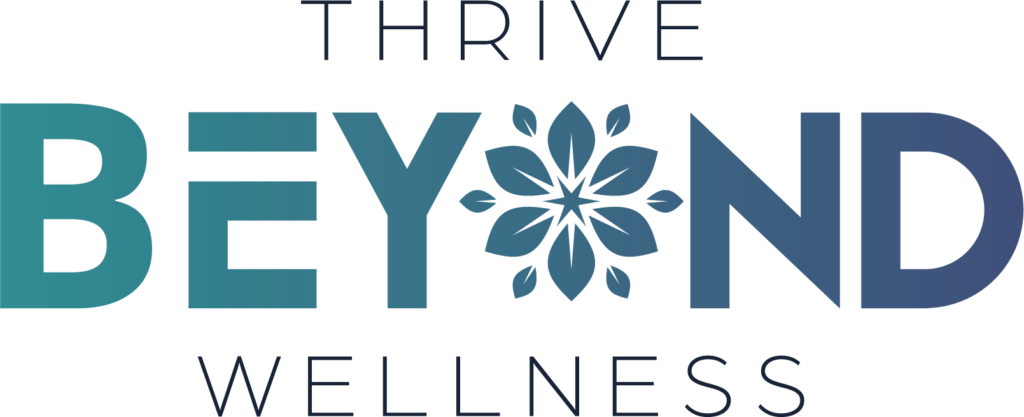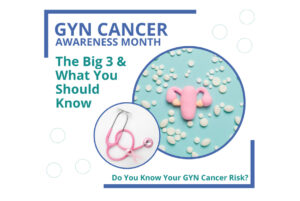
About 61% of menopausal women struggle with sleep issues (1). This means that out of every 10 women around the age of menopause, 6 of these women will have sleeping difficulties.
And maybe you’re one of them. You head to bed, exhausted. Yet, you toss and turn all night. Or you find yourself getting up every night between the hours of 2 and 3 am, struggling to fall back asleep. You then go about your day in a fog. You just don’t have the energy to function at your peak capacity.
You aren’t alone.
Yet, you can approach these issues feeling empowered and ready to overcome them. This frequently comes down to having the right knowledge in your back pocket to be able to implement and adjust as needed. But before we dive into what you can do about your sleeping troubles, let’s take a look at why you should care in the first place. Yes, no one wants to feel constantly drained and exhausted. But what other aspects are sleep and fatigue related to? What’s going on? Remember, knowledge is power. So, let’s give you the power you need to tackle your sleep and fatigue problems.
Stressful Sleeps
Not sleeping is stressful. And stress can cause sleep deprivation. And yes, this seems like a negative feedback loop that’s hard to break. You get stressed, you can’t sleep, and you get more stressed – and so on.
Research has found that those with higher perceived stress experienced shorter sleep durations (2). While changing your perception might sound a little hocus pocus, it could potentially make all the difference. In other words, don’t stress about sleep for the sake of sleep. Or consider practicing relaxation techniques, such as deep breathing or meditation.
At the same time, stress is real. This isn’t something we want to push aside entirely. If the stress hormones are high, this puts your body and mind in a heightened state of alertness. And this makes it hard to sleep.
Why are your stress hormones high?
Well, to put it simply: It’s because you’re stressed out. This could happen because of circumstances in your life, but for menopausal women, it often happens due to an imbalance of hormones.
In fact, research indicates that the stress hormone, cortisol, is elevated at night in menopausal women. This same study pinpointed biological changes as the key reason behind these increased stress levels (3).
Our adrenal glands do a lot of heavy lifting throughout the day when it comes to our fight-fright-freeze response – in other words, our stress reactions. In fact, these glands produce cortisol during these stressed-out times. Our cortisol output if not mitigated and addressed over time can often lead to what can be defined as “adrenal fatigue.”
Regardless of the name, we know the feeling. It often is highlighted by the endless cycle of dreadful drain and a lack of functioning. Over time, this adds to sleep deprivation, slower metabolism, reduced reserves, and the inability to cope well with the mental and cognitive anguish it brings. I’ll dive into this more later in this post.
But generally, when you’re stressed, sleep and high levels of energy don’t come easy.
The goal? You want to get your body out of this stressed state. To do so, you want to look at optimizing your biological environment. This is directly impacted by what you do and what you put in your body.
Optimizing Your Internal & External Environment
Not sleeping and feeling stressed inevitably leads you to feel seriously fatigued throughout your day. A stressed body actually needs more energy. In fact, this is why your stress hormones are high and stay high. These hormones help breakdown muscle tissue and gland tissue for energy when there is no other energy available. In a way, there’s a reason a lot of people eat more or ‘binge’ when they’re stressed out.
The main problem? We try to quench this need through the wrong pathways. For example, we eat junk to calm ourselves. Or we throw ourselves into more work to try to distract our minds and our body from the stress at play. Ultimately, this leads to more stress. We give our bodies more chemicals and substances to deal with rather than providing nutritious options that help guide body processes and that help rebalance hormones. We then add stress on top of existing stress by taking on more work or personal projects. You probably see by now how this isn’t working. It turns into a vicious and endless cycle where stress piles on stress.
And by now, you might be able to decipher what you need to do about it.
But before we get there, I want to dive a little deeper. How do sleep deprivation and fatigue impact your longevity? What about your immunity? And can this all lead to adrenal fatigue? Let’s find out.
k edit button to change this text. Lorem ipsum dolor sit amet, consectetur adipiscing elit. Ut elit tellus, luctus nec ullamcorper mattis, pulvinar dapibus leo.
Impact on Longevity
Stress plays a major impact on longevity. And we know stress impacts sleep and fatigue and vice versa.
This stress directly impacts your telomere length. Telomeres are bits of protein on the ends of your DNA that help protect your DNA from damage. Naturally, these telomeres shorten as we age. Your cells divide and the telomeres become shorter and shorter each time. However, there are many ways you can shorten these telomeres even more and even faster, which leads to accelerated aging and a shortened lifespan.
Stress is one factor that can impact your telomere length (4). Thus, stress can actually cause you to age faster (probably no surprise there) but it can also decrease your longevity.
Weakened Immunity
As you age, your immunity naturally becomes weaker (similar to how your telomere length naturally becomes shorter). In general, this translates into a slower immune response, including a slower ability to bounce back after sickness, a slower capability to heal from infections, and a slower ability of the immune system to be able to detect foreign entities. As you can imagine, this means you get sick more often and likely take longer to recover.
Yet, the impact this natural degradation has on your health depends on other factors too, like your diet, activity levels, stress levels, and sleep. And all of these factors connect to one another. Your diet impacts your sleep and stress. For example, if you’re not eating enough nutrients or enough overall, you might struggle to sleep. Your stress levels impact your sleep and vice versa. Your activity levels – if you over exercise – add stress, but they can also decrease stress when done right. The more active you are, the more energy you need.
Are we seeing a common theme? I’m going to make this really obvious. A lot of it is balance. You need just enough dosages of the right things to optimize your body and establish balanced hormones, which are also links between all of these aspects.
Adrenal Fatigue: What’s That?
The adrenals are small glands located on top of your kidneys. These glands produce cortisol, DHEA (dehydroepiandrosterone) – a precursor to our sex hormones like testosterone, estrogen, and progesterone. It also is responsible for other key hormones that contribute to regulating metabolism, blood pressure, heart rate, and immune system responses.
Adrenal fatigue occurs after long durations where the adrenal glands are producing cortisol. Essentially, this leads to low levels of cortisol, which causes low energy, fatigue, brain fog, cravings, trouble sleeping, and more. At the same time, there appears to be no hard evidence that ‘adrenal fatigue’ exists (5). Many doctors don’t recognize it as a real condition.
In truth, adrenal fatigue often refers to other health issues or imbalances leading to exhaustion and burnout. Why are you stressed? What’s causing this stress? Are you eating right? Are you moving enough? Are you getting enough sleep? If not, why? These are the questions we need to be asking.
Tips & Tricks for Improved Energy
So, what can you do here? Mostly, it’s about caring for yourself and your body. Here are a few tips:[/vc_column_text][vc_empty_space height=”16″][mkdf_icon_list_item icon_pack=”dripicons” dripicon=”dripicons-heart” icon_size=”14″ icon_color=”#338b8f” title=”Move your body. Find a physical activity that you enjoy and that motivates you to move.”][mkdf_icon_list_item icon_pack=”dripicons” dripicon=”dripicons-heart” icon_size=”14″ icon_color=”#338b8f” title=”Narrow in on your diet. Are you eating whole foods? What’s in your diet? It might be time to do a full assessment. Strive to limit pre-packaged and processed foods. Reduce caffeine.”][mkdf_icon_list_item icon_pack=”dripicons” dripicon=”dripicons-heart” icon_size=”14″ icon_color=”#338b8f” title=”Set yourself up for sleep success. This means sleeping in a quiet, cold, and dark area. Go to bed and wake up at the same time. This forces your body into its natural rhythm.”][mkdf_icon_list_item icon_pack=”dripicons” dripicon=”dripicons-heart” icon_size=”14″ icon_color=”#338b8f” title=”Take on a mindfulness practice. This may involve mindful yoga or walking – or even meditation.”][mkdf_icon_list_item icon_pack=”dripicons” dripicon=”dripicons-heart” icon_size=”14″ icon_color=”#338b8f” title=”Add antioxidants to your diet. Antioxidants protect the powerhouses of your cells, the mitochondria. They also encourage proper and optimal cell function.”][mkdf_icon_list_item icon_pack=”dripicons” dripicon=”dripicons-heart” icon_size=”14″ icon_color=”#338b8f” title=”Consider herbal remedies, or adaptogens, to support other common nutritional deficiencies such as B complex, vitamin C, Magnesium, and vitamin D.”][mkdf_icon_list_item icon_pack=”dripicons” dripicon=”dripicons-heart” icon_size=”14″ icon_color=”#338b8f” title=”Consider advanced testing of cortisol and thyroid levels to address underlying issues.”][mkdf_icon_list_item icon_pack=”dripicons” dripicon=”dripicons-heart” icon_size=”14″ icon_color=”#338b8f” title=”Invest in wearable technology to address more precise strategies to adjust your day based on your stress and sleep patterns (ie Ouraring, Garmin, Fitbit, Whoop, etc)”][vc_empty_space height=”16″][vc_column_text]Start today. Sleep doesn’t have to haunt you throughout your day. Connect the dots and uncover where you can make improvements and changes to support your life and your health. Menopause doesn’t have to be a time of angst, stress, or deprivation. It can be filled with as much joy, love, happiness, and energy as any other time in your life.
If you want to learn more or want help toward figuring out your health and rebalancing your hormones, book a Discovery Call with me today. Together, let’s get you on the right path toward success.
Wellness & Epigenetics Coach, Consultant, Physician, Health Advocate, Mentor & Author.








